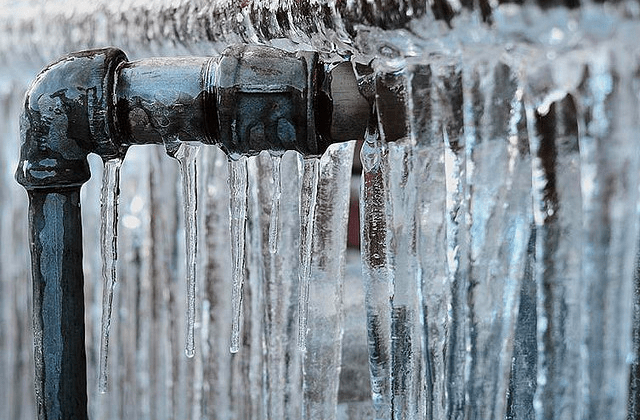Protecting Against Frozen Plumbing in Winter: Critical Advice
Protecting Against Frozen Plumbing in Winter: Critical Advice
Blog Article
This article on the next paragraphs relating to How to prepare your home plumbing for winter weather is totally motivating. Read on and make your own personal assumptions.

Winter can wreak havoc on your pipes, especially by freezing pipes. Right here's how to avoid it from taking place and what to do if it does.
Intro
As temperatures drop, the risk of icy pipelines boosts, potentially leading to pricey fixings and water damage. Understanding just how to avoid frozen pipes is crucial for home owners in chilly climates.
Comprehending Frozen Pipelines
What causes pipelines to ice up?
Pipes ice up when exposed to temperature levels below 32 ° F (0 ° C) for prolonged durations. As water inside the pipelines ices up, it broadens, putting pressure on the pipe wall surfaces and possibly triggering them to burst.
Threats and problems
Icy pipes can cause water disruptions, residential property damages, and pricey repairs. Burst pipelines can flooding homes and create extensive architectural damage.
Indications of Frozen Pipeline
Determining icy pipelines early can stop them from breaking.
Just how to recognize icy pipes
Look for decreased water circulation from taps, uncommon odors or sounds from pipes, and visible frost on revealed pipes.
Prevention Tips
Protecting prone pipes
Cover pipes in insulation sleeves or make use of warm tape to shield them from freezing temperature levels. Focus on pipelines in unheated or external areas of the home.
Home heating methods
Maintain interior rooms appropriately heated up, specifically locations with pipes. Open cupboard doors to allow warm air to flow around pipes under sinks.
Securing Exterior Plumbing
Garden tubes and outdoor faucets
Detach and drain pipes yard hoses before wintertime. Mount frost-proof faucets or cover outdoor taps with insulated caps.
What to Do If Your Pipes Freeze
Immediate actions to take
If you think icy pipelines, keep faucets open up to relieve stress as the ice thaws. Utilize a hairdryer or towels soaked in warm water to thaw pipes slowly.
Long-Term Solutions
Architectural changes
Consider rerouting pipelines far from outside walls or unheated areas. Include added insulation to attics, basements, and crawl spaces.
Updating insulation
Purchase top notch insulation for pipes, attic rooms, and walls. Proper insulation assists preserve constant temperatures and minimizes the risk of icy pipelines.
Verdict
Protecting against icy pipes calls for proactive measures and quick reactions. By comprehending the reasons, indications, and safety nets, house owners can secure their plumbing during cold weather.
6 Proven Ways to Prevent Frozen Pipes and Protect Your Home
Disconnect and Drain Garden Hoses
Before winter arrives, start by disconnecting your garden hoses and draining any remaining water. Close the shut-off valves that supply outdoor hose bibs and leave the outdoor faucet open to allow any residual water to drain. For extra protection, consider using faucet covers throughout the colder months. It’s also important to drain water from any sprinkler supply lines following the manufacturer’s directions.
Insulate Exposed Pipes
Insulating your pipes is an effective way to prevent freezing. Pipe insulation is readily available at home improvement stores and is relatively inexpensive. Pay close attention to pipes in unheated areas such as the attic, basement, crawl spaces, or garage. Apply foam insulation generously to create a buffer against the cold. You can also wrap your pipes in heat tape or thermostat-controlled heat cables for added warmth.
Seal Air Leaks
Inspect your home for any cracks or openings that could let in cold air. Seal any holes around the piping in interior or exterior walls, as well as the sill plates where your home rests on its foundation. Additionally, make sure to keep your garage door closed unless you’re entering or exiting. Leaving it open creates a significant air leak that can lead to frozen pipes.
Allow Warm Air Circulation
During cold snaps, it’s essential to allow warm air to circulate evenly throughout your home. Leave interior doors ajar to promote better airflow. Open kitchen and bathroom cabinets to help distribute heat consistently around the rooms. If you have small children or pets, be sure to remove any household chemicals or potentially harmful cleaners from open cabinets for safety.
Let Faucets Drip
A small trickle of water can make a big difference in preventing ice formation inside your pipes. When temperatures drop significantly, start a drip of water from all faucets served by exposed pipes. This continuous flow helps prevent the water from freezing. Additionally, running a few faucets slightly can relieve pressure inside the pipes, reducing the chances of a rupture if the water inside does freeze.
https://choateshvac.com/6-proven-ways-to-prevent-frozen-pipes-and-protect-your-home/

I am just very enthusiastic about How to Prevent Your Pipes From Freezing and I'm hoping you enjoyed the entire blog post. If you please take a moment to distribute this blog entry if you appreciated it. Thank you for taking the time to read it.
Call Today Report this page